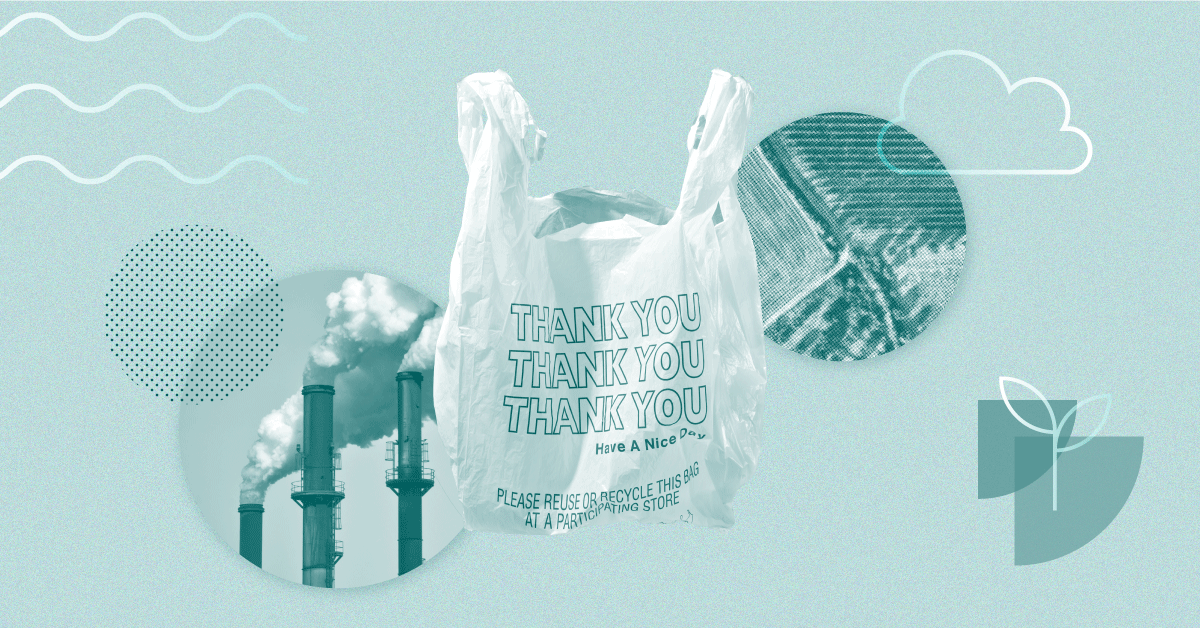
The food and agriculture industry is intimately connected to climate change: heavily affected by it but also a significant contributor to global warming and other pressing environmental and social concerns. With the world’s population projected to climb 20%-plus to 9.7 billion people by 2050, there will be a substantial increase in food demand. That will likely place additional pressure on finite land and natural resources, presenting both challenges and opportunities for agricultural companies.
Agriculture already takes up 50% of all habitable land, and its rapid expansion has been a major contributor to biodiversity loss, water scarcity, and global warming. Any further increases in arable land will likely need to come at the expense of natural ecosystems, which are important sources of biodiversity and sinks of carbon—or something that absorbs more carbon than it releases. In order to limit the need for further land conversion, it will be instrumental to boost crop yields to achieve more with existing croplands. At the same time, environmentally friendly agricultural practices will be essential to support the quality and fertility of soils.
In this context, two key groups of companies stand to benefit:
- Fertilizer, crop, and seed chemical producers that are shifting their portfolios toward more environmentally friendly products. Although conventional fertilizers and pesticides can materially enhance yields, their intense use gives rise to environmental and human health concerns such as land degradation, water pollution, and harmful air emissions. To combat this, some large crop protection producers such as FMC FMC and Corteva CTVA are investing substantially in biologicals, such as microbes or bacteria that can fight insects and weeds. These offerings are usually premium-priced, supporting above-industry revenue growth and margin expansion for the two companies.
- Food companies that are well-positioned to respond to growing demand by effectively managing their direct and supply chain exposure to environmental and social concerns. One such name is Barry Callebaut BRRLY. It is ranked by Morningstar Sustainalytics as number one out of 359 companies in the broad packaged-foods subindustry, with an attractive valuation to sweeten the deal.
Biodiversity Loss Is Becoming a Prominent ESG Concern for Food Systems
Ecosystem services—the services provided to humanity by nature, such as crop pollination and carbon sequestration—are estimated to be worth more than one and a half times the world’s annual gross domestic product. The loss of these services due to deforestation and other ecosystem damage would likely prove substantial.
Although these losses are largely not accounted for in conventional economic models, this is expected to change as data and metrics improve, especially given efforts by the United Nations to mobilize governments for global action on biodiversity. This could be a meaningful risk for agricultural companies because of their contribution to deforestation and land and water pollution. It could translate into stricter regulation aimed, for example, at halting deforestation or incentivizing the use of regenerative agriculture.
Increasing Water Scarcity Presents Operational and Regulatory Risks
Agriculture is responsible for 70% of global freshwater withdrawals (freshwater taken from surface or ground water sources, either permanently or temporarily, and transported to a place of use), but this figure varies significantly from region to region. A figure of above 40% represents high water stress. The risk of water scarcity leading to disruptions in food production is especially pronounced in regions that face high or extremely high water stress and where agriculture is responsible for most freshwater withdrawals, such as in India, Pakistan, and Egypt.
Around 30% or more of the production of the world’s key food crops (wheat, maize, and rice) is located in regions of high to extremely high water stress, a figure that is set to increase in the future. This can translate into operational risk for companies, such as disruptions in production due to insufficient water for growing crops, or regulatory risks, like caps and quotas that could lead to higher water prices. This article from last year further explores the risk posed by water scarcity to portfolios.
Food Systems Are Responsible for Significant Emissions
Food production is responsible for around one fourth of the world’s greenhouse gas emissions—the driving force behind global warming and climate change. Most of these emissions are generated at the farm level, as a result of livestock rearing (largely methane emissions) or fertilizer application (largely nitrous oxide emissions).
For agricultural companies further along the value chain, tackling greenhouse gas emissions is likely to be primarily focused on direct operations (scope 1) and purchased electricity (scope 2). Addressing emissions from the broader value chain (scope 3) will be more challenging. Still, gains are achievable through the broader adoption of regenerative agricultural practices, providing stronger incentives for farmers, and through consumer action, such as reducing food waste and limiting animal product consumption.
3 Stocks on Sale, Well Positioned to Benefit From Industry Tailwinds
Considering all the risks and rapid changes faced by food systems, we believe that economic moats are relevant in helping companies mitigate environmental, social, and governance concerns more effectively. We attribute this to the relatively stable demand of specialized, higher value-added products and to the superior earnings protection provided by durable competitive advantages such as pricing power or switching costs.
In particular, we see three companies with economic moats, attractive valuations, and positive exposure to potential environmental developments in the agricultural space.
FMC
- Morningstar Rating: 4 stars
- Morningstar Economic Moat Rating: Narrow
- Industry: Agricultural Inputs
FMC is a crop chemical pure-play and a top five producer of premium crop protection products globally. FMC is investing in the development of biological crop chemicals in its portfolio, expected to account for roughly 25% of incremental revenue growth over the next decade.
Corteva
- Morningstar Rating: 4 stars
- Morningstar Economic Moat Rating: Wide
- Industry: Agricultural Inputs
Corteva is another undervalued seed and crop chemical producer, set to benefit from the wider adoption of genetically modified seeds, on top of its own ambition on biologicals. The company expects 25% of its crop protection revenue to be generated by biologicals by 2035, compared with roughly 12% in 2022.
Barry Callebaut
- Morningstar Rating: 5 stars
- Morningstar Economic Moat Rating: Wide
- Industry: Confectioners
Barry Callebaut offers an entrenched position in the global chocolate market. Its strong cost advantage renders the company one of the lowest-cost producers and an outsourcing partner of choice for its clients. Through its Forever Chocolate strategy launched in 2016, the company is taking meaningful steps to address the four key challenges of the cocoa supply chain: child labor, lifting farmers out of poverty, carbon and forest footprint, and sustainable sourcing.






















